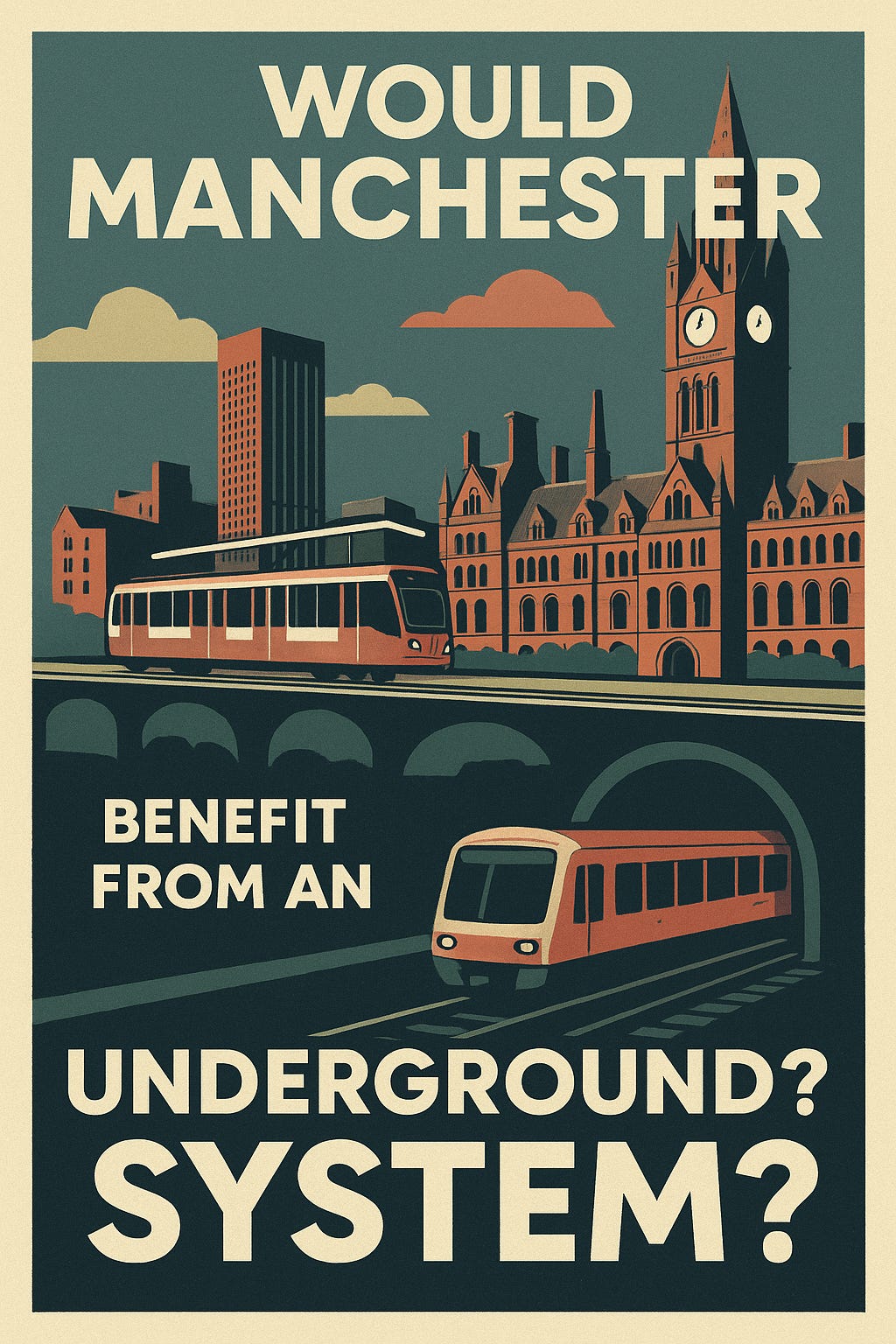Would an Underground System Accelerate Growth in Manchester?
Dr Adam North questions whether an underground system would accelerate Manchester's growth.
Manchester moves quickly. In only a couple of decades, skyscrapers have come to dominate the city’s landscape, the population growth has boomed in the city centre, new parks are opening and being proposed, and there is a general sense of renewal across the city. Although there are fears that this regeneration will only benefit the wealthiest, there is no doubt that Manchester needs to plan ahead for continued growth and the shift away from car usage.
Recently there has been a growing discussion online about a potential underground network in Manchester. The transport system is generally considered adequate by many, but Manchester is among the fastest economically growing regions in the UK, and so the city’s transport links are beginning to strain under the demands of rapid growth and push for public transport usage over cars.
In May-June 2024, Transport for Greater Manchester (TfGM) announced the busiest month in its 32-year history, and some are starting to complain about overcrowding, especially during peak times. TfGM is investing in expanding the existing Metrolink system, but bottlenecks in areas like the Castlefield corridor means that an underground system is under serious consideration.
What are the Benefits?
An underground rail system linking key corridors across Greater Manchester would be transformative. It would relieve pressure on the Metrolink, speed up cross-city journeys, and connect transport deprived areas like Middleton and Wythenshawe directly to the centre.
Urban economists have long pointed out that infrastructure drives productivity. Every minute shaved off a commute is a minute returned to work, leisure, and family life. Studies from London and other European cities suggest underground systems can increase regional GDP by improving connectivity and labour mobility.
The long-term success of growth in Manchester and the development of Atom Valley will depend on a well integrated public transport system, and an underground system offers rapid movement across the city, connecting industries and people.
But the benefit wouldn’t just be economic. A clean, electrified underground could dramatically reduce car dependency, improve air quality, and help Greater Manchester meet its climate targets. Given that air pollution contributes to around 1,200 premature deaths in the region each year, this isn’t just an infrastructure question — it’s a public health one.
The Challenges
The obstacles are substantial. Tunnelling under any city isn’t cheap or easy. The last serious feasibility study in the 1970s estimated billions even then, before the idea was shelved in favour of the Metrolink. Inflation, modern safety standards, and urban expansion would inevitably put the figure into the tens of billions today.
For one Elizabeth Line station in London, the estimated cost was approximately £500 million, and in the current economic environment, it is unlikely that Manchester will get political priority — and there are currently more pressing concerns. Nevertheless, Westminster has historically treated northern infrastructure as an afterthought compared to London’s, where Crossrail was green-lit even as HS2 was scaled back. Securing the necessary investment would require a radical shift in governmental priorities, or a far greater degree of regional autonomy.
What Should We Do?
An underground system is likely decades away, but it is a necessary step to relieve congestion and enable Manchester to adapt to the growing demands of rapid economic and population growth. For now, it’s more likely that TfGM continues to build out the existing Metrolink system, but eventually, calls for an underground will be unavoidable.
If the UK is serious about economic growth and rebuilding political trust in the North, then an underground in Manchester would signal serious intention. Power and resources need to be fairly distributed across the country, and large infrastructure projects are effective ways of achieving this.


